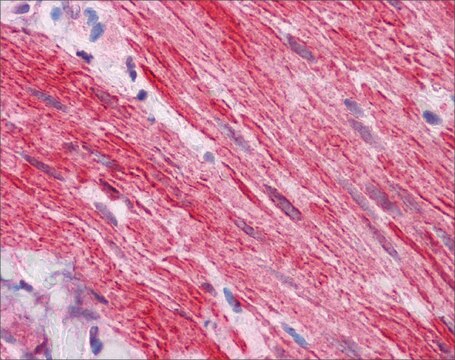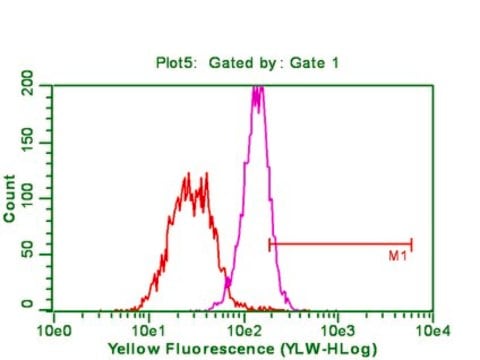AB5972
Anti-Dishevelled-2 Antibody
Chemicon®, from rabbit
Synonym(s):
DVL2, DSH Homolog 2
About This Item
WB
western blot: suitable
Recommended Products
biological source
rabbit
Quality Level
antibody form
purified immunoglobulin (Partially purified)
antibody product type
primary antibodies
clone
polyclonal
species reactivity
human, mouse
manufacturer/tradename
Chemicon®
technique(s)
immunohistochemistry: suitable
western blot: suitable
input
sample type hematopoietic stem cell(s)
sample type neural stem cell(s)
NCBI accession no.
UniProt accession no.
shipped in
wet ice
target post-translational modification
unmodified
Gene Information
human ... DVL2(1856)
mouse ... Dvl2(13543)
General description
Specificity
Immunogen
Application
Stem Cell Research
Hematopoietic Stem Cells
Neural Stem Cells
Immunohistochemistry: 1:1,000 using the avidin-biotin system.
Dilute antibody in 50 mM PBS, pH 7.4 containing 1.5% sodium chloride and 1% normal animal serum (same species as the host of the secondary antibody).
Optimal working dilutions must be determined by end user.
Target description
Physical form
Storage and Stability
Analysis Note
SK-N-SH (human neuroblastoma) whole cell lysates, NIH 3T3 whole cell lysate, BT-20 (human mammary gland) cell lysate, FP (mouse embryonal carcinoma
testicular teratoma) cell lysate
Legal Information
Disclaimer
Not finding the right product?
Try our Product Selector Tool.
Storage Class Code
10 - Combustible liquids
WGK
WGK 2
Flash Point(F)
Not applicable
Flash Point(C)
Not applicable
Certificates of Analysis (COA)
Search for Certificates of Analysis (COA) by entering the products Lot/Batch Number. Lot and Batch Numbers can be found on a product’s label following the words ‘Lot’ or ‘Batch’.
Already Own This Product?
Find documentation for the products that you have recently purchased in the Document Library.
Our team of scientists has experience in all areas of research including Life Science, Material Science, Chemical Synthesis, Chromatography, Analytical and many others.
Contact Technical Service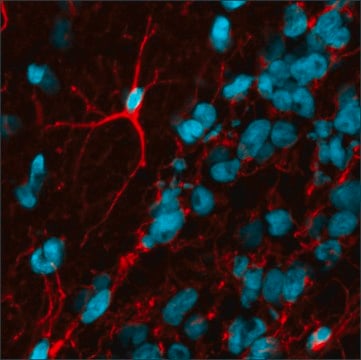
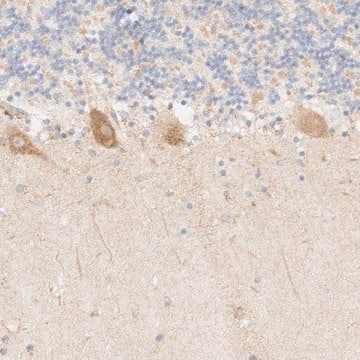
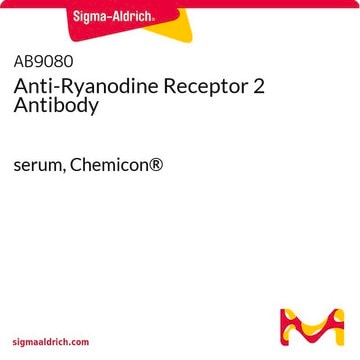
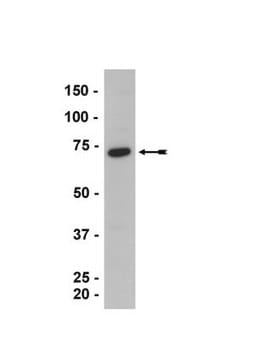



![Poly[5-methoxy-2-(3-sulfopropoxy)-1,4-phenylenevinylene] potassium salt solution 0.25 wt. % in H2O](/deepweb/assets/sigmaaldrich/product/structures/111/584/9e24dfe5-3cb6-4bd8-8bc6-cbe82c1b88cd/640/9e24dfe5-3cb6-4bd8-8bc6-cbe82c1b88cd.png)
